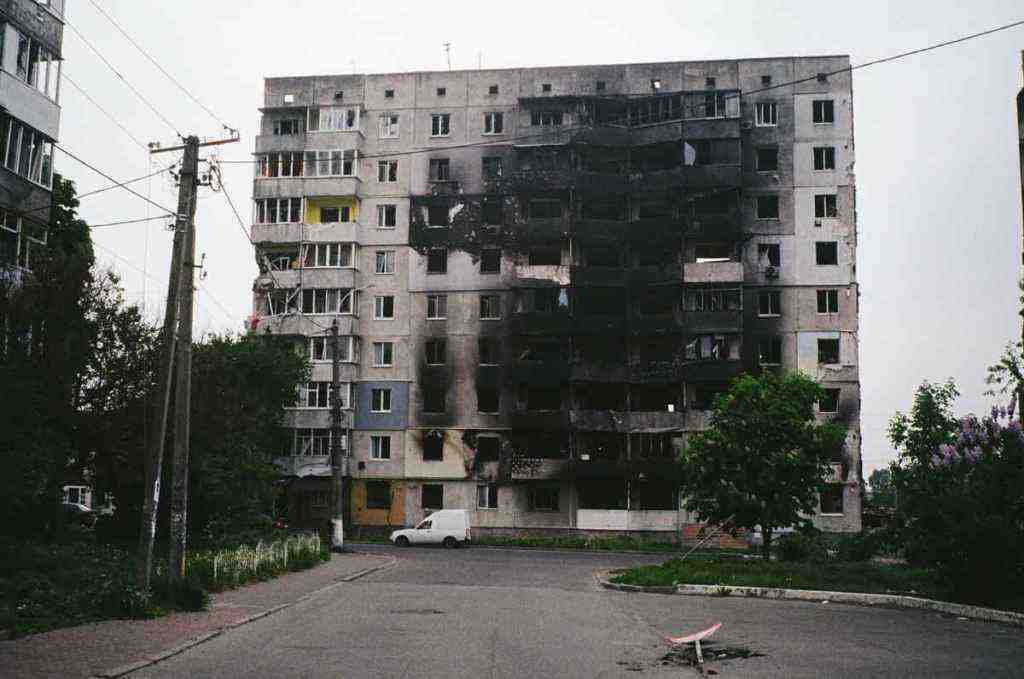Ukraine: The War That Shook the World in 2022
A Clash of Titans
In the annals of human history, few events have had such a profound impact on the global stage as the Ukraine-Russia conflict of 2022. This war, marked by intense battles, diplomatic tensions, and humanitarian crises, left an indelible scar on the world, forever altering its political, economic, and social landscapes.
This article delves into the depths of this momentous conflict, exploring its origins, key turning points, and lasting consequences. We’ll uncover the stories of heroism, resilience, and tragedy that shaped this defining moment in modern history.
The Brewing Storm
The roots of the Ukraine-Russia conflict can be traced back to the dissolution of the Soviet Union in 1991, which left Ukraine as an independent nation. However, tensions between the two countries remained, fueled by historical, cultural, and political differences.
In 2014, these tensions erupted into open conflict when Russia annexed Crimea and backed separatist movements in eastern Ukraine. This marked the beginning of a simmering conflict that would eventually escalate into full-scale war in 2022.
The Spark That Ignited the Inferno
On February 24, 2022, Russian forces launched a surprise attack on Ukraine, marking the start of a full-scale invasion. The world watched in horror as Russian troops advanced deep into Ukrainian territory, capturing key cities and causing widespread destruction.
The Ukrainian people, led by their resilient President Volodymyr Zelenskyy, refused to bow down to the Russian aggression. They mounted a fierce resistance, defying expectations and inflicting heavy losses on the invading forces.
The Global Ripple Effect
The Ukraine-Russia conflict sent shockwaves across the globe, triggering a series of events that had far-reaching consequences.
1. Humanitarian Crisis: The war created a massive humanitarian crisis, with millions of Ukrainians displaced from their homes, seeking refuge in neighboring countries. The conflict also led to a severe shortage of food, water, and medical supplies, exacerbating the suffering of civilians.
2. Economic Turmoil: The war disrupted global supply chains, causing energy prices to soar and leading to a rise in inflation worldwide. The conflict also strained relations between Russia and the West, leading to sanctions and counter-sanctions that further destabilized the global economy.
3. Geopolitical Realignment: The Ukraine-Russia conflict reshaped the global geopolitical landscape. It strengthened alliances between Western countries and prompted a rethink of security arrangements in Europe. The conflict also highlighted the growing influence of China and its complex relationship with both Russia and the West.
The Global Ripple Effect (continued)
4. Energy Security: The war highlighted Europe’s dependence on Russian energy, prompting a scramble to diversify energy sources and accelerate the transition to renewable energy. This led to increased investments in green energy technologies and a renewed focus on energy independence.
5. Cyber Warfare: The Ukraine-Russia conflict also became a battleground for cyber warfare, with both sides engaging in hacking attacks and disinformation campaigns. This heightened awareness of the vulnerabilities of digital infrastructure and led to increased efforts to strengthen cybersecurity measures.
Turning Points and Pivotal Moments
Amidst the chaos and destruction, several key turning points shaped the course of the conflict:
1. The Battle of Kyiv: In the early stages of the invasion, Russian forces attempted to capture Kyiv, Ukraine’s capital city. However, they faced fierce resistance from Ukrainian defenders, who managed to repel the attack. This victory boosted Ukrainian morale and demonstrated their ability to resist Russian aggression.
2. The Sinking of the Moskva: In April 2022, the Moskva, Russia’s flagship cruiser in the Black Sea, was sunk by Ukrainian missiles. This marked a significant blow to Russian naval power and became a symbol of Ukrainian resilience.
3. The Liberation of Kherson: In November 2022, Ukrainian forces launched a counteroffensive and liberated the city of Kherson, a major regional center in southern Ukraine. This victory marked a turning point in the war, demonstrating Ukraine’s ability to retake territory from Russian control.
The Road to Resolution: Complex and Uncertain
As the war dragged on, diplomatic efforts intensified to find a peaceful resolution. However, negotiations between Ukraine and Russia proved challenging, with both sides unwilling to compromise on key issues.
In 2023, a series of international conferences and summits were held, bringing together world leaders to discuss the conflict and seek a diplomatic solution. While some progress was made, a comprehensive ceasefire remained elusive.
The Legacy of the War: Scars and Lessons
The Ukraine-Russia conflict left a profound legacy, both in terms of human suffering and global political dynamics. The war highlighted the importance of international cooperation, the need for strong democratic institutions, and the resilience of the human spirit in the face of adversity.
The conflict also raised questions about the future of global security, the role of nuclear weapons, and the limits of international law in preventing armed conflict.
Conclusion: A Call for Unity and Peace
The Ukraine-Russia conflict of 2022 stands as a stark reminder of the fragility of peace and the devastating consequences of war. As we look towards the future, it is imperative that the international community remains united in its support for Ukraine and its people.
We must continue to provide humanitarian assistance, strengthen diplomatic efforts, and work towards a just and lasting peace. Only through collective action and a shared commitment to peace can we prevent such tragedies from happening again.
In the spirit of unity and compassion, let us all strive to build a world where peace prevails, where conflicts are resolved through dialogue, and where the horrors of war become a distant memory.
